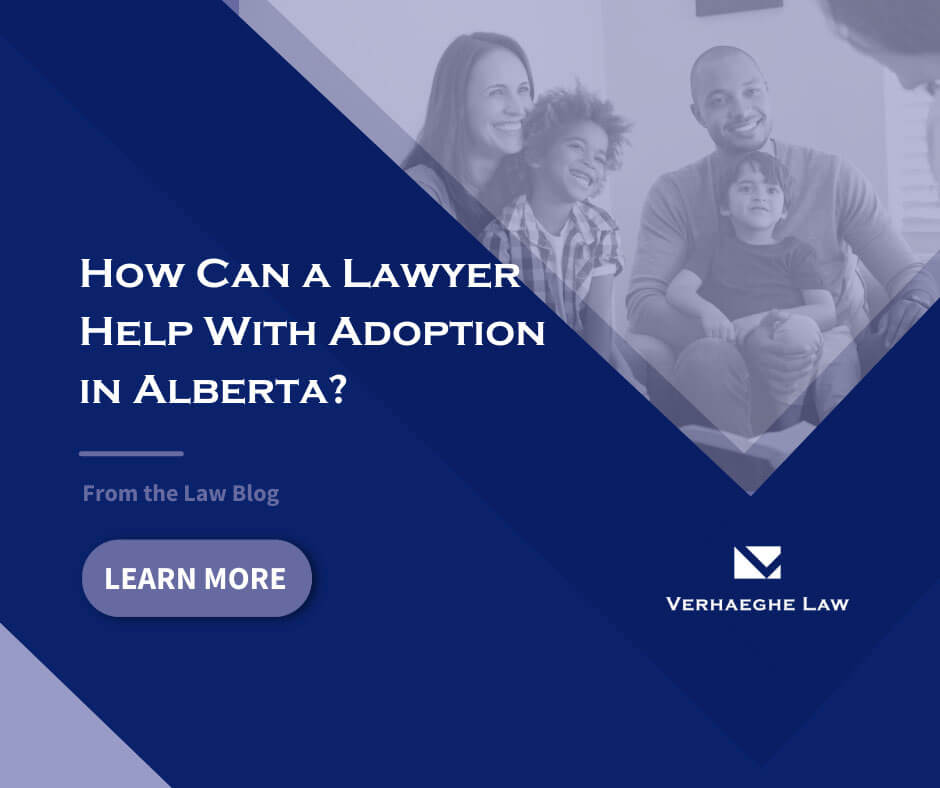How Can a Lawyer Help With Adoption in Alberta?

Adoption is a meaningful way to provide children with the love, security, and sense of belonging that comes with being a permanent family member. It also allows hopeful parents to realize their dreams of raising a child. Adoption also establishes a legal framework that protects the rights and obligations of children and their adoptive parents.
The prospect of adoption is exciting, but the process of adoption in Canada can be confusing, lengthy, and expensive. Having an experienced Edmonton family lawyer by your side to explain your options and guide you through the complex process could help you avoid unnecessary costs and delays and increase your chances of a successful adoption.
Why Adopt?
There are countless personal reasons why individuals and couples choose to adopt. Struggles with infertility or other medical issues that could increase the risks of complications during pregnancy lead many people to pursue adoption to fulfil their dream of raising a child.Many same-sex couples and single parents who are ready to start a family might wish to adopt a child.
Step-parents often adopt their stepchildren. And certain families may choose to adopt a relative whose natural parents can no longer care for them.
Many people simply want to give a child a permanent and loving home where they can thrive. But, no matter the reason for adoption, its rewards can be immeasurable for both children and parents.
Types of Adoption in Alberta
When considering adoption, it is essential to understand your options. There are three types of adoption in Alberta: private, international, and public adoption.
Private Adoption
When you adopt the child of a spouse or relative, or if a child is placed in your care by either their parents or a licensed adoption agency, it is considered a private adoption. In these cases, the biological parents or family and the adoptive parents must come to a legal agreement.
An Edmonton family lawyer may be able to help you by preparing and filing the necessary documentation on your behalf, negotiating the adoption agreement's terms and conditions, attending any required court appearances, and managing disputes, should they arise.
The private adoption process in Alberta can take up to six months (or longer). The cost of private adoption can vary based on the situation. It might be beneficial to consult with an Edmonton family lawyer throughout the process to offer advice on your specific case and let you know what to expect.
International Adoption
International adoption is highly complex. The many rules and regulations designed to protect children vary by country and are subject to change. International adoptions tend to be very expensive and can take years to complete.
When considering international adoption, it is important to understand that there are two processes to navigate: the adoption process and the immigration or citizenship process. Adoptive parents must comply with the 1993 Hague Convention, a multilateral treaty that regulates adoptions between participating countries, as well as with Alberta's Child, Youth and Family Enhancement Act. An Edmonton family lawyer may be able to help you review the different legal processes for different countries of origin, find a reputable international placement agency, and navigate the Canadian immigration laws to which you must adhere.
Public Adoption: Children in Government Care
When children cannot be cared for by their biological parents and families, they might be placed in the care of Alberta Children's Services. When you adopt a child in government care, you must meet specific eligibility criteria to ensure that you can meet your child's unique needs. You do not always require a lawyer for public adoption.
Contact our Verhaeghe Family Lawyers Today
Adoption should be a joyous and exciting experience. If you or your family wish to proceed with an adoption, our Verhaeghe family lawyers may be able to help. Contact us today for more information and to schedule a consultation.
* Please note that the information in this article is not intended as legal advice but rather as a general overview of family law. If you are seeking legal advice, please consult with a lawyer.

